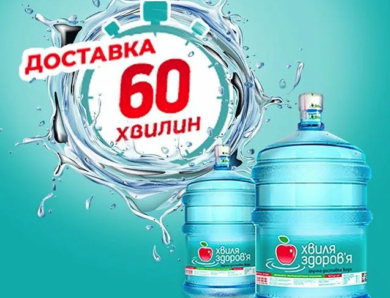Can you drink alcohol?, which alcohols can be consumed
Although medical alcohol seems to be a completely safe substance, if mishandled, it can be a serious health hazard. In order not to harm yourself when using such a product, and also be able to distinguish between poisonous and food types of alcohol, it is advisable to familiarize yourself with the following information.
Types of alcohol
Alcohols include a rather large group of substances, which differ in chemical composition and physical properties. The chemical formula of these substances includes a hydrocarbon base (example, ethane S2N5) and a hydroxyl group (HE).
In terms of chemistry, this group includes substances with two or more hydroxyl groups (example, ethylene glycol, which is used as a base for automotive antifreeze), and simple alcohols, which includes ethanol.
In most cases, the term "alcohol" implies a simple version of this substance.
The following types can be attributed to this category:
Methyl alcohol or methanol (CH3OH)
It is a rather strong poison. Ingestion causes blindness, in high doses - fatal result. Consumption in any quantities is fatal.
Ethyl alcohol or ethanol (S2N5ON)
It is the only type of alcohol that is completely suitable for internal consumption. Its properties depend on the raw material, from which it is derived, but all types of alcoholic beverages are based on this substance.
Murashin alcohol (NSOON+S2N5ON)
It is an alcoholic solution of formic acid. It is used in medicine as an effective antiseptic. Due to the aggressive properties of formic acid, this product is not suitable for oral administration. With, if used in small doses, this substance does not pose a serious danger to life and health.
Isopropyl alcohol (C3H8O)
It is used as a substitute for ethyl alcohol in various industries, and also as a disinfectant.
Actually, this substance is not a poison, but its use in large quantities leads to much more pronounced poisoning, than in the case of ethyl alcohol. The main difference from ethanol alcohol in this case is that, that in the process of splitting isopropyl alcohol, acetone is formed, capable of causing serious harm to the body.
Ammonia
Actually, this agent is an alcoholic solution of ammonia. Taking into account the rather high toxicity of the latter, such a composition should not be used internally, because of the danger of serious poisoning. Recipes of "medicinal" means using this substance are given (example, ammonia with water) are rather poison, than medicine.
Camphor alcohol
Similar to the previous tool, this composition is an alcoholic solution of racemic camphor. It is used as an external antimicrobial, anti-inflammatory and anesthetic agent. Considering, that even when applied to the skin, such a product can cause irritation, if it is taken inside, you can earn serious burns of internal organs.
Salicylic alcohol
It would be correct to call this agent an alcohol solution of salicylic acid. Salicylic alcohol from the pharmacy has a vasoconstrictor effect, bactericidal and antimicrobial effect. Due to the aggressive properties of salicylic acid, it is forbidden to use this product internally, to avoid serious damage to the mucous membrane of internal organs.
Boric alcohol
In fact, this name refers to an alcoholic solution of boric acid. Boric alcohol from a pharmacy has a good antiseptic effect, but when ingested, it causes severe toxic damage to the body. For this reason, you can't drink it.
Aviation alcohol
Technical ethyl alcohol is used as a working fluid in many systems of modern aircraft. The difference between this substance and pharmacy ethyl alcohol is the presence of additives, that prevent its internal use, and also adapt its physical properties for the normal operation of the equipment. Regarding the danger of such a substance for health, there are different opinions. Obviously, the reason for this is the presence of various types of aviation technical alcohol. In a number of cases, the ideal suitability of such a product for internal use is noted. At the same time, there are data on heavy metal poisoning, contained in such a product. Given the presence of such a danger, this type of alcohol is better not to drink.
Aceptolin alcohol
This medicinal product is a mixture of various alcohols, the list of which also includes glycerin (propane alcohol). Since mainly Aseptolin is used as a disinfectant, to increase the effectiveness of its use, it uses a high concentration of alcohols, from 70 to 90%. So how about the question, can you drink strong alcohol? 70 degrees, there are mostly negative thoughts, it is not worth using such a remedy inside.
Ferein
This substance is high-quality alcohol, obtained chemically. It is used as a medical antiseptic, as well as in the food industry. Basically, such a product is produced by the fortress 95%. Thanks to the exact observance of all norms in the production of such a product, this alcohol is suitable for internal use. To avoid burning mucous membranes, it must first be diluted with water to a strength of 40°.
How to distinguish ethyl alcohol from others
It is important to know
Visually, as well as taste and smell, methyl alcohol is no different from ethanol. Therefore, only the following methods should be used to determine the type of this substance, all other 'true remedies are ineffective. If there is no confidence in the origin of alcohol, it is better to refuse its use altogether.
There are several ways to distinguish rectified ethyl alcohol from harmful substances.
-
The color of the flame
When ignited, ethyl alcohol burns with a blue flame, and technical - green.
-
Reaction with potatoes
If potatoes, placed in a container with alcohol, did not change color, so it is ethanol. Potatoes turn pink when in contact with methanol.
-
Reaction with copper
When placing a hot copper wire in a container with alcohol, there should be no unpleasant smell. Otherwise, you cannot drink such alcohol, this is methanol.
The harm of ethyl alcohol
The main reason for the manifestation of negative consequences is the use of ethyl alcohol (ethanol) there is a multiple excess of the maximum permissible amount of this substance.
In case of moderation in the amount of alcohol intake, negative consequences should not occur.
With regular use of any type of alcohol in adults (50 g of pure alcohol per day) and very large (100 m and purer alcohol per day) the development of the following health disorders may be observed:
- Diseases of the cardiovascular system
Violation of the elasticity of the vessel walls, their constant narrowing and expanding under the influence of alcohol, as well as a decrease in the quality of work of the heart muscles significantly increases the risk of heart attacks and strokes.
- Lung damage
Due to the weakening of the body's protective systems in alcoholism, there is an increase in the likelihood of developing lung infections.
- Damage to the organs of the digestive system
Constant irritation of the mucous membrane of the stomach with alcohol, load on the liver and pancreas, associated with the breakdown and removal of alcohol from the body, over time leads to serious violations in the work of these organs.
- Problems with the genitourinary system
Since the kidneys must constantly remove alcohol breakdown products from the body, in the end, it can cause their inflammation.
Poisoning with ethyl alcohol
An interesting fact
Ethanol is one of the most available and effective antidotes for methyl alcohol poisoning. Dose in 20-50 of pure alcohol will make it possible to postpone the damage to the nervous system in time and provide the opportunity to bring the victim to the hospital in a satisfactory condition.
Ethanol poisoning mainly occurs as a result of consuming an excessively large amount of this substance. With, the probability of undesirable consequences is significantly influenced by the quality of the product. Example, poisoning with medical alcohol from a pharmacy will occur at a higher dosage compared to a low-quality artisanal product.
Minimum dose, in which ethanol poisoning occurs, depends on many factors:
- habits (tolerance) to alcohol,
- body weight,
- type and quantity of snacks, and so on.
A larger dose is generally considered life-threatening 4 g of pure alcohol 1 kg of body weight. That is, in terms of vodka (40% pure alcohol) weight for a man 80 kg is considered a dangerous dose 800 p.
Symptoms of ethanol poisoning include the following:
- violation of coordination up to the impossibility of independent movement;
- violation of perception of reality, with severe poisoning - loss of consciousness;
- reduction or complete absence of response to painful stimuli;
- disorders of the circulatory system and respiratory center.
Depending on the phase of poisoning, a significant increase in pressure may be observed, rapid breathing, or, vice versa, critical drop in blood pressure and respiratory failure.
If the listed symptoms are accompanied by pale or bluish skin, as well as a drop in body temperature, then this is severe alcohol poisoning, which is life-threatening. In this case, it is better to send the victim to the hospital for qualified assistance.
How to drink alcohol without harming the body
It is important to know
Pure alcohol, with its regular use even in small quantities, has a rather pronounced destructive effect on internal organs. in addition, intoxication from this product can manifest itself in a jerky manner, until sudden loss of consciousness. This can be caused by drinking a lot of liquid after drinking alcohol, or a sudden change in the temperature of the surrounding air (entering a warm room from the cold).
The question is, can you drink ethyl alcohol?, it is desirable to reduce it to, what amount of this substance can be consumed within a limited time. The quality of the drink also plays a role.
If we consider alcohol from a pharmacy, then most likely there will be no problems with the quality of such a product.
Raw alcohol in most cases contains a fairly large amount of various impurities, which also includes methanol and various safflower oils. Therefore, it is harmful to the body in any amount.
It is worth remembering when calculating the dosage, that medical alcohol has a concentration, almost two and a half times higher than vodka. Also, it is absorbed into the blood much faster and causes a more pronounced intoxication.
The most reliable way to reduce the negative effects of alcohol on the body is to dilute it to a safe concentration with a non-alcoholic liquid (example, water or juice.
There are also techniques, which allow you to drink pure alcohol with minimal risk to the body. In this case, there is a possibility of burning the larynx as a result of a mistake, in particular, when inhaling while swallowing.
The way to drink alcohol without harming the body includes the following steps:
- several inhalations and exhalations are made;
- breath is held halfway through inhalation;
- a glass of alcohol is drunk, moreover, before and after a sip, no inhalation is made;
- after the alcohol enters the stomach, a strong exhalation is made through the mouth;
- the minimum is drunk 50 g of still liquid;
- a breath is taken.
Frequently asked questions:
We understood the types of alcohols and their effects on the body. But still many have questions. Let's try to analyze the most popular of them.
Can you drink medical alcohol??
Honey. alcohol is distinguished by a fairly high quality of purification and the accuracy of compliance with the preparation technology, therefore, it does not pose a health hazard. Basically, pharmacy alcohol is used diluted with water. It is worth noting, that the main purpose of this substance is to disinfect tools and equipment, rather than ingestion. Therefore, the product of medhimprom is ethyl alcohol 95 — degree strength does not differ in pleasant taste qualities.
Can you drink alcohol for external use??
It all depends on the type of this substance. Example, formic alcohol from a pharmacy or alcohol with salicylic acid for the above reasons is better not to use.
Ordinary ethyl alcohol 70 percent, intended for preparation of solutions for external use, probably won't do any harm.
Can you drink expired alcohol??
Like any substance, alcohol has a certain shelf life. Basically the answer to the question, can you drink expired alcohol?, depends on the type of container, which contained this substance. If the alcohol was stored in a glass container, then even after the expiration of the specified period, he should not cause harm. The only drawback will be a decrease in its concentration due to evaporation. When storing alcohol, in vessels made of other materials (for example - plastic) it should not be drunk after the expiration date.
Can you drink undiluted alcohol??
Ethyl alcohol 96 degrees, in the absence of certain skills in its use, represents a serious danger. The fairly high aggressiveness of this substance in some cases leads to severe burns of the mucous membrane of the larynx and stomach. Therefore, it is better not to use pure alcohol. If there is still an irresistible desire to create an extreme drink, it is necessary to dilute alcohol with water.
Can you drink diluted alcohol right away??
Since when water is added to alcohol, a chemical reaction begins, diluted medical alcohol should not be drunk directly after dilution. Most sources recommend insisting on an aqueous solution of alcohol 5-7 days, until the cessation of all chemical reactions.
Can you drink alcohol tinctures??
The answer to this question depends on the type of product. Example, you should not drink propolis with alcohol.
The preparation of medicines in the form of alcohol tinctures has been known for many years. The effectiveness of such means is achieved due to the ability of alcohol to extract active substances from medicinal raw materials. So, properly prepared alcohol tinctures can and should be drunk.
Can you drink technical alcohol??
Special substances are added to this type of alcohol to distort the taste and smell, which makes its use as unpleasant as possible. For this reason, such a substance is not worth drinking alcohol. At the same time, with a moderate amount of use, such a substance will not pose a danger to life.
Can you drink dry alcohol??
In fact, dry fuel has nothing to do with alcohol. It is performed with urotropin and paraffin. When urotropin enters the stomach, it reacts with hydrochloric acid and forms formaldehyde, which is clearly not good for health.
In order not to cause serious poisoning, dry fuel should not be taken inside.




